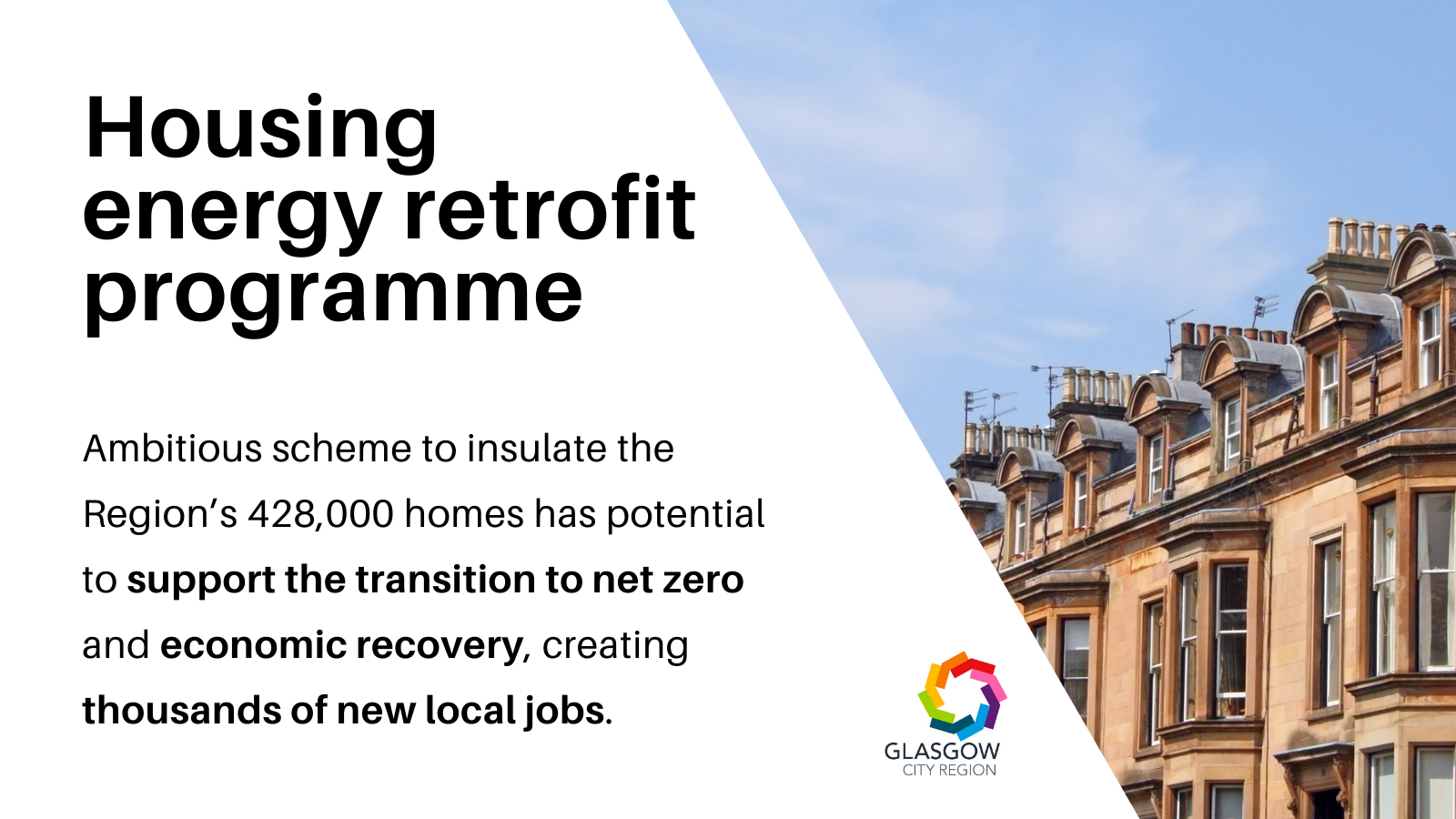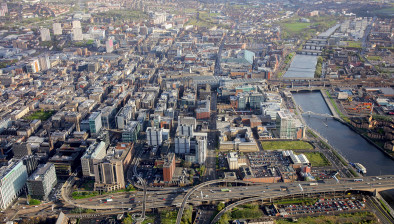Study highlights economic potential of Glasgow City Region home insulation programme
Proposals underway for an ambitious housing energy retrofit programme to the Glasgow City Region’s 428,000 homes could create thousands of new local jobs, improve the quality of housing, reduce fuel poverty and deliver on Scotland and the UK’s commitment to net zero carbon emissions, according to an independent study.

Findings from the Glasgow City Region-commissioned study were discussed and a series of actions agreed at yesterday’s Glasgow City Region cabinet meeting.
The study highlighted that to meet net zero targets committed by government, retrofitting the Region’s 428,000 least energy efficient homes is a necessity. A programme of this scale and type would offer extensive economic and environmental benefits but would require substantial funding. Not only would it decarbonise and insulate domestic properties, helping to reduce fuel poverty, it would also create thousands of new local jobs and support the growth of Regional businesses involved in delivery of the scheme.
The report, submitted to the cabinet, indicated that significant work would be required to ensure that the local companies are able to support the delivery of the scheme and that we have a trained workforce in place able to take advantage of the new jobs.
Councillor Susan Aitken, chair of the Glasgow City Region cabinet and leader of Glasgow City Council, said: “Glasgow City Region is one of the most affordable and attractive places to live in the UK. To support our net zero ambitions and the needs of existing residents, we are taking forward a series of actions including proposals for a Regional Home Energy Retrofit scheme.
“The study shows the sheer scale and complexity of the challenge and the funding required. But with COP26 on the horizon, we are determined to work in partnership with government to significantly increase the number of homes that are insulated and given low carbon heating systems.”
Of the Region’s 886,156 domestic properties, 428,000 are below the Energy Performance Certificate (EPC) C standard and identified as requiring to be retrofitted. Owner occupiers make up 71% and private landlords 12% of this figure.
Working with owner occupiers is considered one of the most significant risks to delivery. Overcoming the range of barriers to upscaling retrofit with owner occupiers will require a comprehensive framework of incentives and/or regulation in place.
Glasgow City Region portfolio holder for housing and leader of West Dunbartonshire Council, Councillor Jonathan McColl, said: “Retrofitting our homes to make then more energy efficient offers us both a challenge and an opportunity. We want to maximise the benefits that come into Glasgow City Region to create and sustain local jobs while also making a vital contribution towards achieving net zero carbon.
“As we progress our retrofit plans, we will focus on how best to support local businesses to benefit from retrofit and we will work with Skills Development Scotland and local colleges to ensure that training opportunities are available to our residents.”
The Glasgow City Region Cabinet agreed a number of key actions including work to explore with the Scottish Government how current retrofit funding could be realigned to better incentivise local manufacturers to accelerate and invest resource in scaling up their operations and capacity.
Work will also be taken forward to understand the local supply chain provision, and how this could be boosted, both in terms of skills and manufacturing capacity – so that local businesses are geared up both to deliver and to make the most of the upcoming opportunity.









